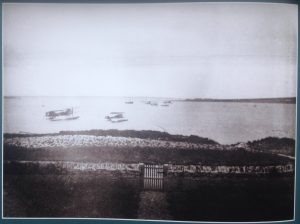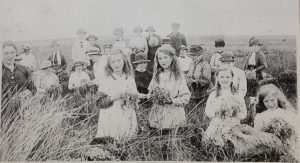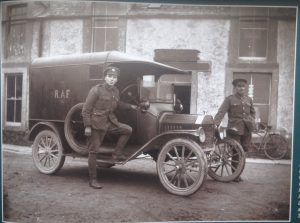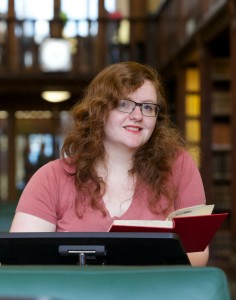Emily Glass, a postgraduate researcher in the Department for Archaeology & Anthropology, is a woman with many projects on the go. Between digging onsite for the University of Bristol’s Berkeley Castle Project, preparing for her upgrade this summer, and conducting her regular research on communist Albania, she has also found time to work with the Westray Heritage Trust on a First World War community engagement event as part of the WWI centenary commemoration on the Orkney Island of Westray. We spoke to her about the project to learn about its potential impact and the value of preserving peoples’ stories in history.
‘Remembering Wartime Westray’ uses the 1916 Battle of Jutland and the sinking of HMS Hampshire as a focal point from which to explore how the island of Westray was impacted both physically and socially by the First World War.

Why this point, specifically? Ms. Glass contextualises these particular events, explaining how by 1916 England had already been at war for 2 years. The Battle of Jutland brought home for the residents of Orkney “the fragile nature of being at war…first-hand”, because “the knowledge that German U-Boats had been able to get so close to the naval fleet meant that the Orcadian Home Front was no longer impenetrable. The active front line of war had shifted right up to the shores of the islands, bringing the horror and trauma home.” Across the nation, conscription became mandatory, rationing increased, and the death toll rose steadily. Stress, uncertainty and wartime fatigue overcame the island’s population: “a collective sense of vulnerability and loss was felt, but it was necessary to maintain some level of normality to cope with the daily routine of island-life”. It is particularly this tension, and the human faces and voices of this time, that Ms. Glass hopes to capture.

Her project endeavours to create a display that invites the local public and visitors to reflect on the major events that took place on Westray’s Home Front, the role of WWI in shaping today’s Westray, and finally to collect the memories and stories that are still known from this particular period in time. Discussing the project with her and going through her materials, it is clear that a large part of her energy is focused on preserving stories from 1916 – which exist in the form of artefacts, wartime memorabilia, documents and people’s memories – before they disappear into the past altogether. “It is important to examine any physical remains of the First World War before they become unrecognised,” Ms. Glass explains, “and get the stories behind wartime objects while they are still known.”
The artefacts that Ms. Glass hopes to record are war souvenirs from WWI life: trench art, embroidered postcards, trophies of war, maps of Westray’s wartime places, diaries, photographs. The project will also host a series of workshops to gather these local memories and record the stories behind them, providing specialist training to Westray Heritage Trust staff and volunteers on the appropriate methods of recording wartime history. In this way, the project will contribute immensely to an increase in knowledge of the surrounding area, and provide an archive for future generations to explore.
All recordings will culminate in a permanent and publicly accessible documentary and photographic archive of wartime resources on Westray, and further contribute towards a planned 2018 exhibition to mark the centenary of the close of the First World War.
Remembering Wartime Westray is supported by the Orkney Islands Council World War One Culture Fund and the Westray Heritage Trust. It is aimed that this project will generate a significant increase in local knowledge that will contribute towards an archive legacy for future generations.






